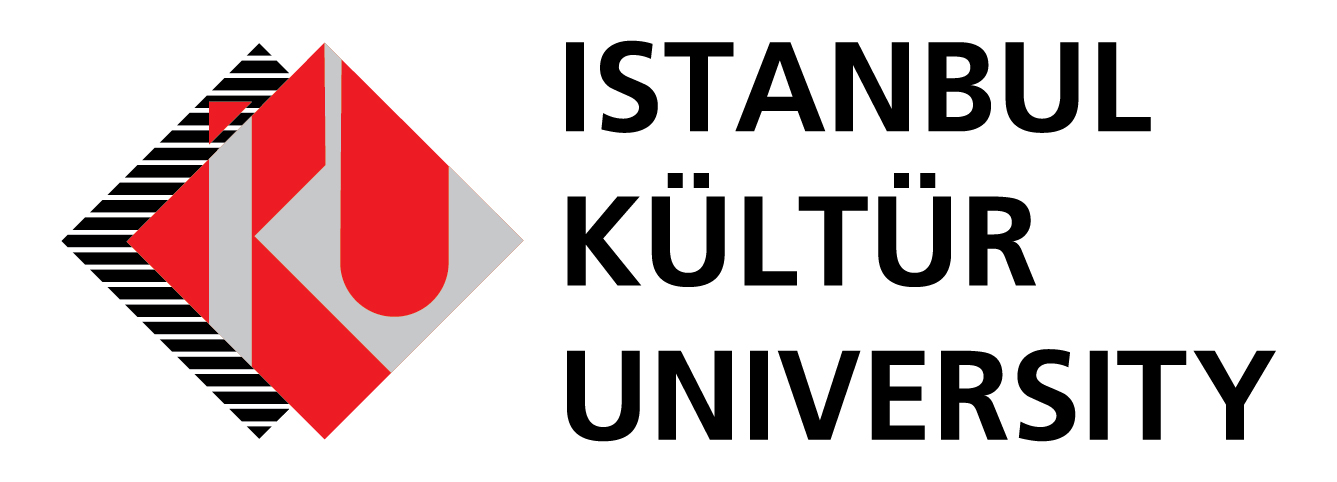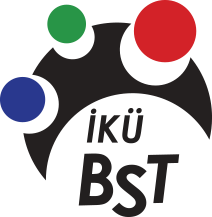“Culture is the foundation of the Republic of Turkey. Culture is to read, to understand, to see, to make sense from what you can see, to take lessons, to think, to train the intelligence.”
Mustafa Kemal Atatürk
To become a prestigious university in national and international arenas in the fields of education, scientific research and public service.
Kültürlünün ödevi, öğrencilerini düşünsel -duygusal- bedensel açıdan bir bütün olarak en üst düzeyde geliştirmek; onları çağdaş değerlerle donatmak ve yaşama hazırlamaktır. Öğrencilerin eğitim süreci sonunda sevgi ve saygı gören, sevgi ve saygı dolu, özgüvenli, mutlu ve etik değerlere sahip, başarılı birey ve yurttaşlar olması esastır.
IKU always aspires to cherish Atatürk’s principles and reforms ‘‘with the guidance of reason and science’’ in his words and to ‘‘exceed the level of modern civilizations.’’ This purpose is the ‘‘Dynamic Ideal’’ of IKU. IKU especially strives to raise awareness of its ideals among ther students and to guide them accordingly.
IKU keeps a close eye on modern developments in educational practices and benefits from these developments in its own practices. It internalizes improvement and development through modern sciences and technologies as a natural lifestyle and endeavors to extend and spread this lifestyle. It understands modernization as reaching the thoughts, consciousness, approach, conditions and requirements of the era that is based on reason and science, and are universally valued and agreed upon. IKU adopts them as their goals and principles.
IKU aims for its students to speak languages other than their native language, to know the improving and changing technologies and use them, to have universal values, and to communicate with the rest of the world. Our students are curious about different cultures, thoughts and approaches. They follow and pay attention to them, approach them with understanding and benefit from them.
The student is a value entrusted to IKU for education relying on the guidance of its academic members. Keeping students at the center in all the activities, accepting them as unique and special “individuals” with their own rights and obligations, acting with the principle of ‘‘catering to student’s needs’’ at any given time, and showing unconditional love and unprejudiced acceptance to them are the main principles of education.
IKU believes that education should be carried out as a versatile and flexible process, according to the intelligence and learning abilities of students, as well as their personal and social needs. It is open to different views, opinions and evaluations on any matter. It possesses the understanding to listen to opposing views and criticize them in a democratic manner.
IKU aims to not only acquire knowledge, but also desires knowledge to be internalized, analyzed, synthesized, used for solving problems and reproduced by students. Along those lines, it strives for the working of knowledge during students’ education and helps them achieve educational depth and breadth by the acquisition of new knowledge.
Continuous improvement and the pursuit of innovation are fundamental to IKU. IKU believes that the current condition is not enough, but acknowledges that better is always possible for everything and maintains its efforts to reach perfection. Progressive and everlasting constructive improvement and a value-adding pursuit of innovation and change is IKU’s main philosophy at every level of education.
IKU’s rector, deans, department heads and all academic members have adopted the university’s vision as their own. The administrators and the academic members have an understanding of responsible leadership that models, sets examples, guides and supports students as part of their shared institutional values. Leaders of IKU question, search and realize what needs to be done to achieve productive results, instead of doing as they wish.
IKU adopts the principles of ‘‘learning to learn’’ and ‘‘lifelong learning’’ with the desire and awareness to “learn” in its educational activities. In this sense, instructors never forget that they are ‘‘learners,’’ as well. IKU’s goal is to make sure that learning and teaching activities are carried out enthusiastically as a natural part of life, not with imposition, threat or by force.
IKU believes that human beings, the society and the world are a whole; and courses, topics, plans and programs are inseparable in its educational activities. Therefore, it also takes a close interest in courses and topics outside of its field. It believes that science, native and foreign languages, mathematics, social and cultural courses; languages, arts and sports; cultural, mental, intellectual and physical improvement all complete each other in education. It emphasizes communication and collaboration between these fields.
IKU’s administrators, instructors and the other staff place the utmost importance on quality. For IKU, quality means students’ superior academic achievement, competence in preparation for their professional career and life, continuous improvement and innovative approach in services; and in an effort to achieve their vision and the mission, they lead the way in decisiveness, leadership, teamwork, collaboration, self-control, self-improvement and search for excellence.
IKU emphasizes the use of new and contemporary technologies in education and views them as an effective learning tool. It takes care to ensure that technology is intertwined with a solid culture, philosophy and ethics; it does not turn technology into a myth by glorifying it alone; it views technology more as a means of reaching its vision and mission; it considers technology to be a starting point for change, transformation, and even for finding new technologies.
IKU is aware that educational practices require sustainability for a steady development in the light of its vision, mission, principles and values. It strives to accomplish these anywhere at any given time. It regards every possibility in and out of the classroom as an opportunity for learning and benefits from them.
IKU respects every thought and belief. It allows different ideas to be expressed, and it considers this an incontestable right. The limit to freedom of thought and belief is the rights and freedom of other people, universal human rights, our national entity and integrity, the framework drawn by reason and science, and Atatürk's reforms and principles.
IKU listens not only to its own ideas or one-dimensional guidance, but it also listens to the opinions and thoughts of the educated. It is sensitive to their curiosity, interest, questions and problems. It does not supersede students while supporting them, but rather cares about helping students act as role models and leaders in all matters, instead of merely giving advice to them, and it acts with awareness.
IKU knows that the individual is equipped with many innate skills, and it creates and supports the necessary opportunities to unearth these strengths. It considers it their obligation to show care and attention in discovering and improving talented students with special skills.
Starting in the classroom, IKU participates in all activities and tasks related to education and administration in every unit of the school and every task to be done. It supports participation by accomplishing the idea of achieving together and sharing the achievement, and being a model and leader in this respect.
IKU knows that the students’ native language, the language of mathematics and foreign language are the three key languages in learning and development. It especially regards a high level of knowledge, consciousness and competence in the native language as a prerequisite for a contemporary, healthy, productive and effective education. It acts in line with the understanding that these three languages play a key role on the path to knowledge, science and life, and it strives for high academic achievement.
IKU believes that reaching the truth is only possible by getting rid of superstition, obsession and prejudice with a healthy method of thinking and understanding based on scientific thinking, reasoning and knowledge. It attaches importance to the internalization of this belief and its development by combining it with intuitive power. The goal in every circumstance is the objective and scientific truth. It replaces the wrong with the right and the unreal with the real based on this standard.
IKU recognizes the importance of the natural and social environment, ecological, cultural and historical values and makes efforts to spread this awareness. It takes measures, produces projects and undertakes an exemplary, leading role to ensure that its students are sensitive to human beings, the world and their natural surroundings during their education.
IKU knows that education is a process consisting of successive, interactive and complementary work and procedures that are not accidental but are planned, organized, conscious and uninterrupted. It is aware that vision, mission and goals can be achieved by managing this process efficiently. It knows that the desired productivity can only be achieved with such an approach and focuses on the goal.
IKU is a classic example of steady, consistent and good-natured people and citizens. Apart from paying attention to the academic development of its students, IKU aims to educate them to be good-natured people and citizens with strong character, equipped with universal human values.
IKU has the awareness, habit and attitude of self-assessment and self-control as an educator at every level of educational and administrative activities. Academicians set an example for their students in this regard, and they take care of developing the self-assessment and self-control attitudes of their students.
IKU closely follows artistic activities, views them as a way of life and supports them. Aesthetic space and sensitivities have a place of their own. IKU is often eager and willing to actively participate in activities both inside and outside of school, to integrate its students into these activities and to develop the same sensitivity in them.
IKU believes in the principle of making peace an integral part of the nation and the world, beginning with itself, its own institution and surroundings. It seeks to solve problems in a peaceful manner. It emphasizes listening, making sense and developing an understanding in relationships and communication, and it encourages people to become closer and share. It acknowledges that pacifism is the starting point of the attitudes and approaches that are the source for a free, happy and strong life, and it strives to spread this consciousness and attitude.
IKU embraces the belief that every human being is a unique and special individual with their own rights. While ensuring this, it does not confuse being an individual with being "selfish." It is sensitive towards society; it never forgets that social consciousness and societal benefit should be pursued in every situation and action; it does not hesitate to fulfill its responsibilities. As a dynamic part of the society, it strives to sustain and improve the societal culture and values.
IKU takes care to be united with the vision, mission, all institutional and individual principles, as well as values and aims defined in this Constitution, giving them the utmost importance anywhere at any given time. In this regard, it places importance on being a positive example and leader both inside and outside the institution. It strives to add value and richness to itself and its community, to the institution and society, and does so as a leader. It is proud and happy to be a part of the IKU family.


